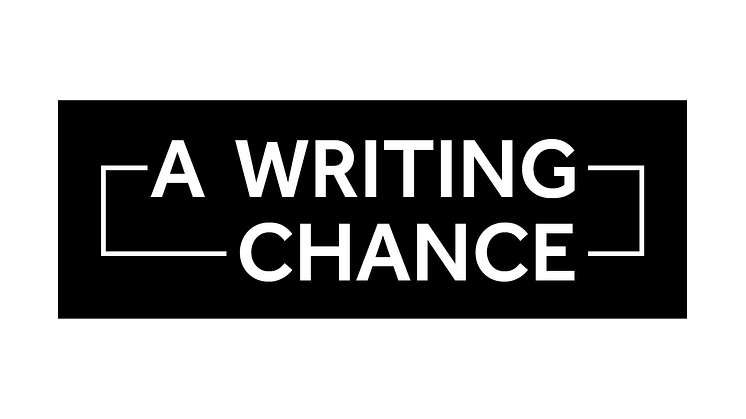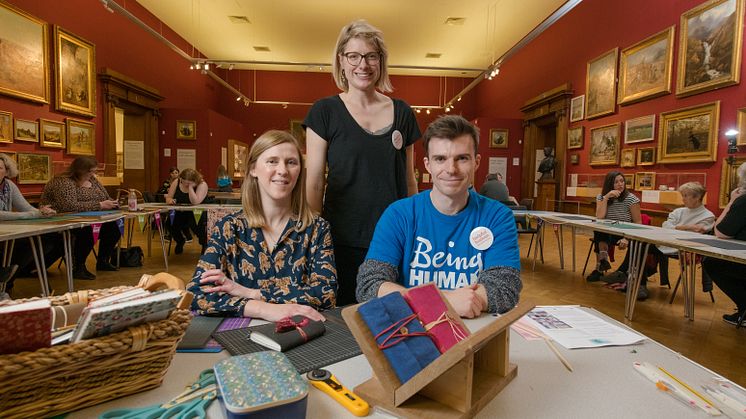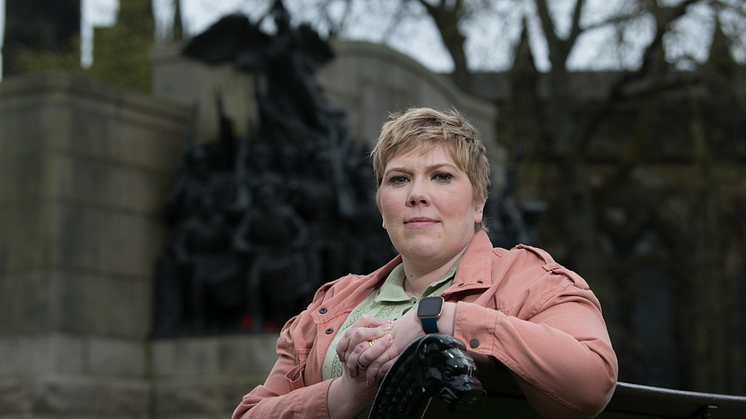Press release -
EXPERT COMMENT: Humanities Graduates Shaping the Contemporary World
Professor Katy Shaw, Professor of Contemporary Writings at Northumbria University discusses Humanities graduates shaping the Contemporary world for Palgrave Macmillan.
The challenges posed by an ongoing age of social, economic and political austerity have inspired a variety of responses across Higher Education and its academic disciplines. While some sectors have become characterised by a rhetoric of defensiveness and victimhood, responses from the Humanities are notable for their desire to manage the onset of change, rather than to resist it. Breaking down borders in a world where borders seem to be back in fashion, the Humanities seek to equip a future generation with a tool-belt of strategies, theories and methodologies to navigate a future society. The transferability and relevance of Humanities skills have never been more evident than in contemporary discourses of employability and work-related learning. The recent British Academy Skills Report - The Right Skills: Celebrating Skills in the Arts, Humanities and Social Sciences (AHSS) explicitly argued that the vitality of Humanities degrees lies in their development of a diverse skills set that enables graduates to adapt and evolve in the rapidly changing socio-economic and political contexts of the modern world. Post-Brexit, this role will become ever more vital to ensuring the long-term productivity and competitiveness of the UK workforce, and its relationship to other countries.
It is no coincidence that the CEOs of many Fortune 500 companies are Humanities graduates. Harvard Business Review recently profiled the increasing trend for top corporate companies targeting Humanities graduates in their recruitment strategies. Profiling Humanities graduates as ‘innovative thinkers who can help with your thorniest strategy problems’, the Review argues that these disciplines create individuals who are uniquely placed to offer companies new approaches as a direct result of their training in applying new ways of thinking to complicated contemporary problems. Google Director Damon Horowitz even gave a public lecture on ‘Why you should quit your technology job and get a humanities PhD’. Revealing that of the 6000 people hired by Google each year, 4-5000 are Humanities-related graduates, Horowitz concluded his lecture by arguing that ‘there is little you can do that would be a surer path to leaping dramatically forward in your career’ than to study for a Humanities degree. Start-Up founder Michael Litt echoes his call, outling the growing demand for Humanities-specific skills in the Tech sector. In a recent Fast Company interview, Litt reflects that Humanities graduates bring a level of qualitative analysis [that] can’t come from the data alone’, contributing ‘instinct, critical thinking, and a deeply contextual understanding of human nature’ – core competencies that Tech companies develop in order to better understand the people who consume their products. The financial industries have also stepped up their targeted recruitment of Humanities graduates. Goldman Sachs recently revealed that Humanities students comprised its second largest cohort of recruits, and that the company has begun holding special recruitment events aimed at Humanities under and postgraduates.
Employers love our students because Humanities degrees produce independent critical thinkers who process and communicate diverse data in creative ways, are reflective in their practice, and analytical in their approach. Humanities graduates have the skills necessary to help shape the modern world. They are global graduates, with the intellectual prowess, leadership ability and world-class standards to understand the importance of breaking down relevant boundaries and to shape shaping and redefine the perceptions of others. As a direct result of their diverse curricula, our subject areas produce global scholars with global horizons, who are flexible and adaptable to the changing contexts and demands of the modern world.
In his article ‘The Death of the Universities’, Terry Eagleton famously asked ‘Are the Humanities about to disappear from our universities? The question is absurd. It would be like asking whether alcohol is about to disappear from pubs, or egoism from Hollywood. Just as there cannot be a pub without alcohol, so there cannot be a university without the humanities’. As the twenty-first century endures its awkward teenage years, the Humanities continue to offer society answers to some of its most pressing challenges, while making a vital contribution to the development of the British economy. The possibilities and potentialities of the Humanities lie in their unique ability to release the artificially imposed paradigms of disciplinarity into a free flow of discussion and enquiry that can have a transformative power on wider society. Here at Northumbria University, our mission statement in the Humanities articulates a ‘hope that our students will learn to tell new stories about the twenty-first century, with the sense of cultural context and critical insight that will help them shape their workplaces, their communities and their national life in the future’. In an era obsessed with value/impact utility, it is has never been more vital to talk about the power of stories, the complexity of the Humanities, and their potential contribution to the well-being and development of the twenty-first century world.
This article was originally published by Palgrave Macmillan. You can read the original article here.
Topics
Northumbria is a research-rich, business-focused, professional university with a global reputation for academic excellence. To find out more about our courses go to www.northumbria.ac.uk
If you have a media enquiry please contact our Media and Communications team at media.communications@northumbria.ac.uk or call 0191 227 4604.










